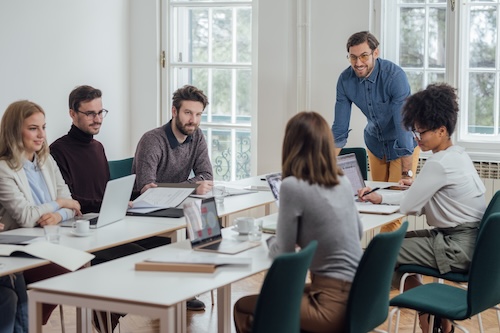Editor’s note: This guide has been updated with the latest information. The end date of the Pay Yourself Back categories has been extended through Dec. 31, 2022.
The latest Pay Yourself Back categories from Chase for Sapphire and Ink cardmembers — Airbnb, dining, and internet, cable and phone services — have been extended through Dec. 31, 2022. These categories were set to end on Sept. 30, but Chase has confirmed to TPG the end date extension. In addition, shipping has been added as a new category to the Ink business cards beginning Oct. 1.
Meanwhile, eligible charitable donations using Sapphire, Freedom and Ink cards continue to remain as well — with the previously announced end date of Dec. 31, 2022.
Sign up for our daily newsletter
The Pay Yourself Back feature allows cardmembers to redeem points for expenses outside of travel at a favorable rate.
Here’s everything that you need to know about using Pay Yourself Back.
What is Pay Yourself Back?
In 2020, Chase introduced Pay Yourself Back as an ongoing redemption option within Ultimate Rewards to give cardmembers another choice in how they can redeem points. The categories have evolved over time, with the removal of options such as grocery and home improvement stores.
In short, the Pay Yourself Back option allows cardholders of many Chase cards to use points at a redemption value similar to booking travel. This won’t lead to maximum value for your Ultimate Rewards points, but if you’re looking for a simple return (or are sitting on a pile of points with no immediate use for them), it could be a good choice.
Related: The best Chase credit cards of September 2022
What purchases are eligible for Pay Yourself Back?
These are the categories eligible for Pay Yourself Back that are set to end in December:
The information for the Chase Ink Plus card has been collected independently by The Points Guy. The card details on this page have not been reviewed or provided by the card issuer.
In addition to the above categories, all Sapphire Preferred, Ink and Freedom cardholders (including the Chase Freedom Flex and Chase Freedom Unlimited) can continue to redeem at 1.25 cents per point for select charities with Pay Yourself Back through Dec. 31, 2022. Sapphire Reserve cardmembers can redeem at 1.5 cents per point.
And if you’re interested in using your points to make a difference in Ukraine, the following four options directly support humanitarian efforts there:
- International Medical Corps.
- International Rescue Committee, Inc.
- UNICEF USA.
- World Central Kitchen.
The additional list of charities for Pay Yourself Back includes:
- American Red Cross.
- Equal Justice Initiative.
- Feeding America.
- Habitat for Humanity.
- Leadership Conference Education Fund.
- NAACP Legal Defense and Education Fund.
- National Urban League.
- Thurgood Marshall College Fund.
- United Negro College Fund.
- United Way.
Let’s say you had an eligible purchase on the Chase Sapphire Reserve. Instead of receiving a $100 statement credit when redeeming 10,000 points, a Sapphire Reserve customer would receive a credit of $150 for the same number of points when used for an eligible Pay Yourself Back charge. This matches the rate offered on Ultimate Rewards Travel redemptions for that card.
Chase Sapphire Reserve cardmembers can also use Pay Yourself Back for their annual fee.
Requesting a credit
The process of requesting a credit through Chase’s Pay Yourself Back program is relatively straightforward. Simply log into your relevant Ultimate Rewards account via mobile app or desktop and select the “Pay Yourself Back” option in the sidebar.
Next, you’ll see a list of eligible purchases for which you can redeem points. Points can be redeemed for purchases as far back as 90 days, at a rate of 1.5 cents each for Sapphire Reserve cardholders, 1.25 cents if you have the Sapphire Preferred, Ink Business Preferred or Ink Plus, and 1.1 cents for the Ink Business Cash and Ink Business Unlimited.
Next, you’ll see a list of eligible purchases for which you can redeem points. Points can be redeemed for purchases as far back as 90 days, at a rate of 1.5 cents each for Sapphire Reserve cardholders, 1.25 cents if you have the Sapphire Preferred, Ink Business Preferred or Ink Plus, and 1.1 cents for the Ink Business Cash and Ink Business Unlimited.
In an example from earlier this year, I had nine eligible internet, cable and phone purchases (three shown) on my Ink Plus. Simply check off the purchases you want to redeem and proceed to the next page.
You can choose to offset the full purchase amount, assuming you have enough points to cover it, or you can redeem a smaller amount if you prefer.
From there, you can confirm the redemption value and amount and choose to complete the transaction. Your statement credit should post within three business days.
Statement credit options on other purchases
Chase has long offered the option to redeem points for a statement credit — that’s not new. Simply log into your Ultimate Rewards account, hit the drop-down menu and select “Cash Back.”
You’ll be presented with an option to enter the amount you’d like to redeem and where you’d like your rewards deposited. All cash-back redemptions are fixed at 1 cent per point, only half of TPG’s valuation for Ultimate Rewards and lower than any of the above Pay Yourself Back options.
Even so, Chase’s traditional cash-back option is more generous than what you can expect from some other issuers. Here’s how it breaks down for some of the most popular programs and cards:
The information for the Citi Prestige card has been collected independently by The Points Guy. The card details on this page have not been reviewed or provided by the card issuer.
Bottom line
Chase’s Pay Yourself Back feature provides valuable flexibility for many cardholders. But does it make sense to redeem Chase Ultimate Rewards points at up to 1.5 cents apiece toward non-travel charges, which is still at least 25% shy of TPG’s 2-cent valuation?
Ultimately, that decision comes down to how you plan to use your points, how many you currently have with airline and hotel programs, and whether or not you’d benefit significantly from the statement credits.
Additional reporting by Chris Dong, Stella Shon, Summer Hull and Zach Honig.



















.jpg)
Discussion about this post